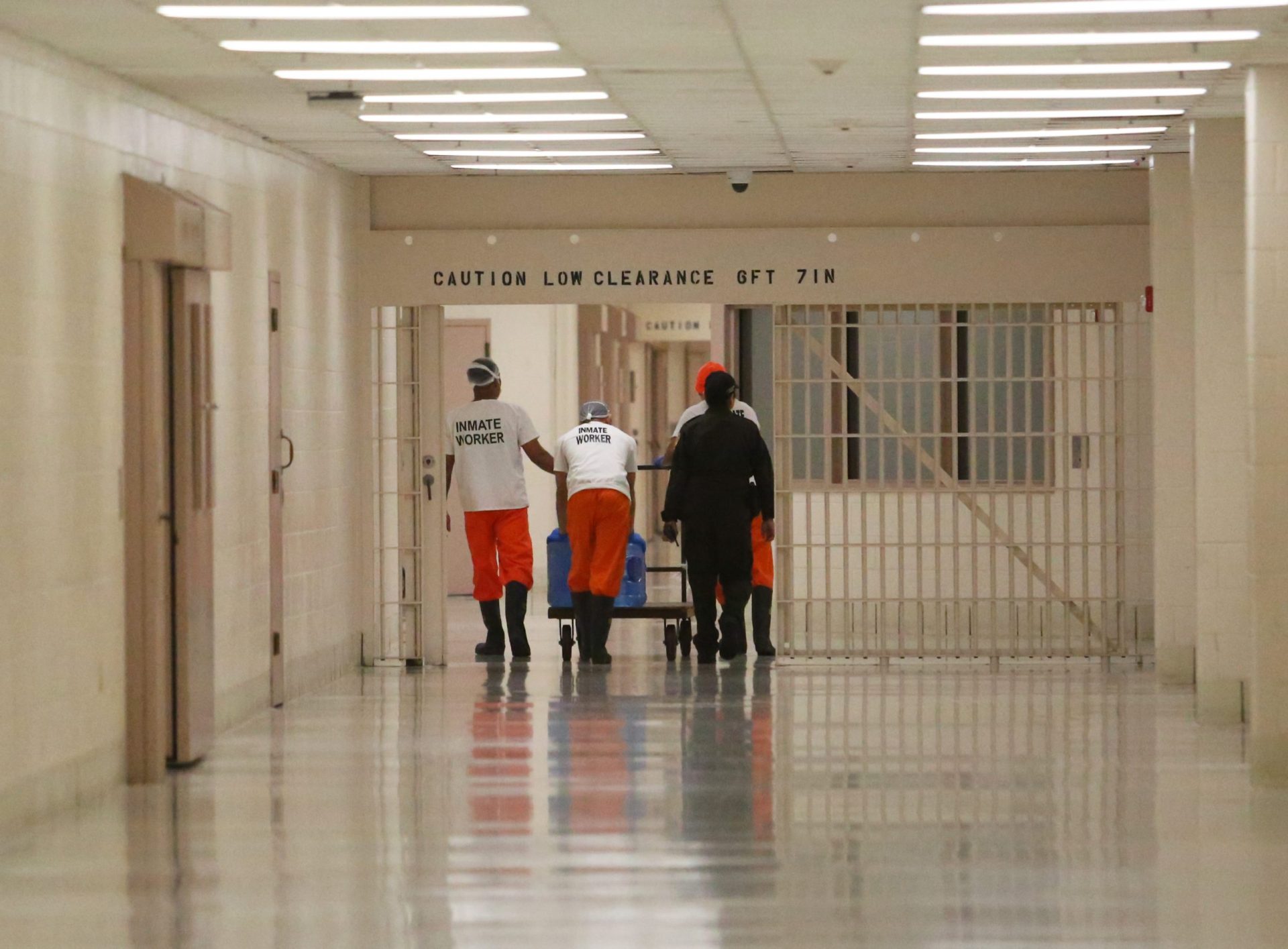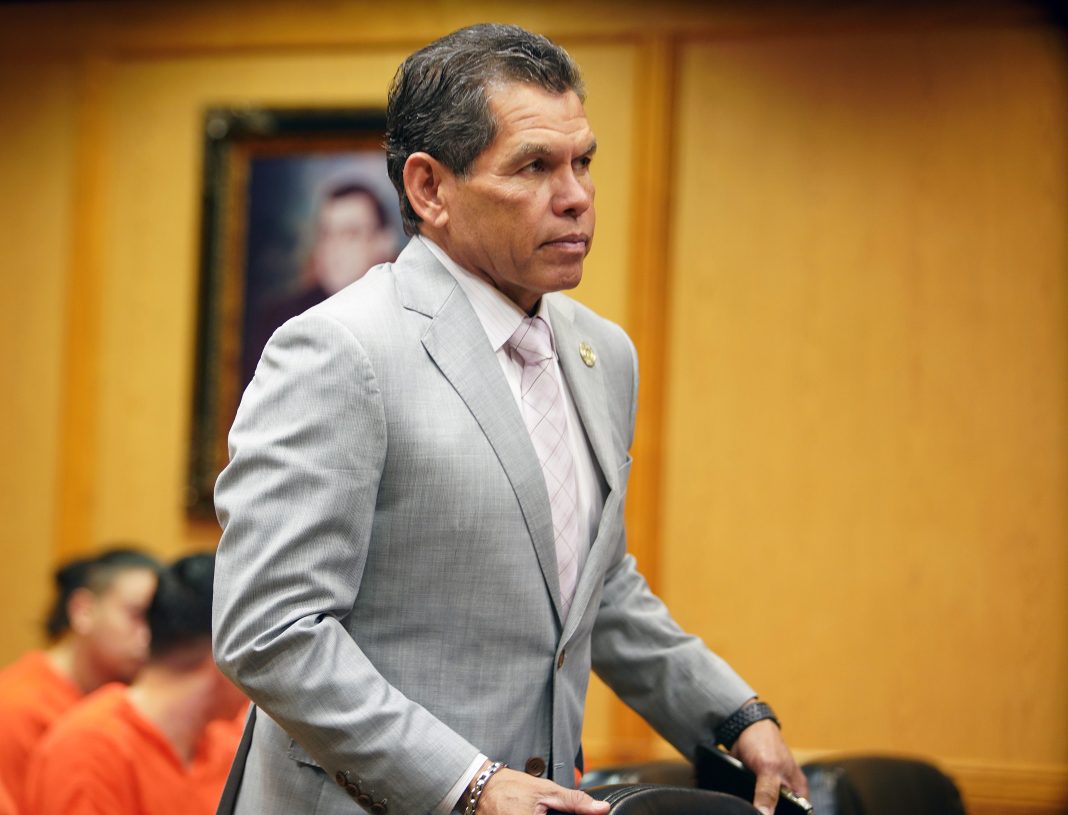|
Only have a minute? Listen instead
Getting your Trinity Audio player ready...
|

In the months since winning the election for district attorney, Toribio “Terry” Palacios has been working to fulfill his campaign promises and has been gradually seeing results.
Palacios not only won the office but he also inherited Hidalgo County’s various issues of which he’s working on addressing.
Once elected, Palacios stated he would work to build a stable of prosecutors to tackle major crimes, address the jail overcrowding that’s plagued Hidalgo County for years and use a “rocket docket” to expedite the process of those accused of nonviolent offenses.
The DA told The Monitor on Thursday that his office is working on creating a major crimes unit with the help of a second assistant district attorney.
“We’re working on developing a major crimes unit and we hired a second assistant Alex Benavides that may be heading that as soon as we get it together,” Palacios said. “The issue we’re having, which is an issue throughout the state of Texas, because of COVID, we’re all short of prosecutors.”
Palacios added that they’re only 90 days into working on the issue regarding the shortage but are attempting to be as effective as possible with the prosecutors they currently have, though the shortage issue is being addressed.
Hidalgo County’s jail overcrowding, an issue that’s haunted the county for at least 20 years now, is also being addressed in the form of plea bargains, according to Palacios.
Since Palacios has been working on reducing the backlog of defendants, The Monitor has been reporting these plea deals on a near weekly basis.

“I’ve been speaking with the sheriff on a weekly basis and we’re moving out cases,” Palacios said. “We’re disposing of cases and therefore freeing our jail … If I’m not mistaken, a week ago we moved out at least 75 which was good, really good, but it cost the taxpayers $100 per person.”
The overcrowding issue in the county has cost the taxpayers millions of dollars. Hidalgo County taxpayers paid over $8 million last year alone.
Though plea bargains are a certain way of clearing up the jail, some people, specifically families of victims, may not be too pleased to hear the deals some defendants receive from the state.
Last week, the daughter of Christina Bruno, who was killed in a car crash involving a man with a history of DWIs going back 17 years, voiced her displeasure with his sentencing during her victim impact statement after he was sentenced to 18 years in prison.
Palacio said victims are seldom forgotten when a plea deal is being made.
“Anybody that’s a victim in any type of criminal case always has my ear and we always tell them what we’re doing,” Palacios said. “Of course, we can’t replace a loved one, but we do sit down with them. We do explain to them why we’re doing this and what’s our justification for doing it.”
He explained that, more often than not, they offer these plea bargains because they don’t know what a jury would give the defendant should they go to trial.
It’s possible a jury panel would give the defendant a lighter sentence or more and if that happens, the defendant has a right to appeal.
Palacios said that his office makes sure the defendant waives their right to appeal when taking a plea bargain.
“I haven’t seen too many families who are dissatisfied with what we’ve done so far in the last 90 days,” Palacios said.
Anybody that’s a victim in any type of criminal case always has my ear and we always tell them what we’re doing. Of course, we can’t replace a loved one, but we do sit down with them. We do explain to them why we’re doing this and what’s our justification for doing it.
When working on a plea, Palacios said he takes many factors into account such as the defendant’s age, criminal history and the propensity of violence and of reoffending.
He adds that he keeps the offenders’ age in mind as he believes that plea deals should also be about rehabilitation for young people who make mistakes.
“We’re not only here to represent the victims but we’re here to represent the community and sometimes young kids, 17, 18, 19-year-old kids make a mistake and it’s about rehabilitation also,” Palacios said.
“I need to balance all that out and see the case, and a lot of the time it’s about facts and what we can’t prove and what we can prove and what type of defense they have. So all that takes play.”
Palacios added that every case is different. They speak to the victims and take much into consideration, especially the defendants’ ages and the probability of rehabilitation.




